Film illuminates power of shared experiences to uplift incarcerated women
| Published: 03-22-2024 5:00 PM |
HOLYOKE — Sonia Mendez never imagined how writing could give her a second chance.
She attended her first creative writing workshop while incarcerated, and spent most of the class clowning around, joking with the class facilitator and poking fun at the prompts.
But she continued to attend the writing workshops, and soon began to enjoy the craft. Now, 14 years later, when Mendez feels frustration bubble up inside her or tears well up, she writes.
“Ask an inmate what it means to be alive and she’ll tell you it’s the toothpaste in the morning. Otherwise, she will be silent and not voice her opinions during Spades,” Mendez writes in the opening stanza of her poem “Alive.”
Those first workshops Mendez attended were hosted by Voices from Inside, a Massachusetts organization offering creative writing courses for currently and formerly incarcerated women, women at risk of incarceration, and women in recovery centers in Hampden, Hampshire and Franklin counties. Since 1999, Voices from Inside has helped more than 1,600 women find their voices and successfully reintegrate into their communities through art.
In 2023, Holyoke Community College Professor Alexandra Wagman created a documentary called “Finding the Words: The Story of Voices from Inside,” featuring stories of six formerly incarcerated women involved with Voices from Inside, including Mendez.
“If you watch the film, you can see the difference in my vocabulary [and] in my writing from the way I used to speak then to the way I speak now,” Mendez said. “But it also has opened the doors to many experiences, working with the community outreach, just bonding with different organizations.”
Mendez was one of three women from Holyoke Community College featured in the college’s celebration of Women’s History Month for their contributions to Wagman’s film. HCC English Professor Lisa Mahon and Criminal Justice Professor Nicole Hendricks joined Mendez on Wednesday at the HCC Campus Center to speak about the film and the impact of community-based responses to trauma.
Article continues after...
Yesterday's Most Read Articles
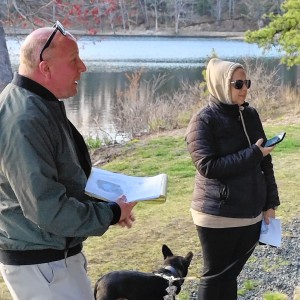 Plan calls for upgrades to Silver Lake in Athol
Plan calls for upgrades to Silver Lake in Athol
 On The Ridge with Joe Judd: What time should you turkey hunt?
On The Ridge with Joe Judd: What time should you turkey hunt?
 Magic comes to Red Apple in Phillipston
Magic comes to Red Apple in Phillipston
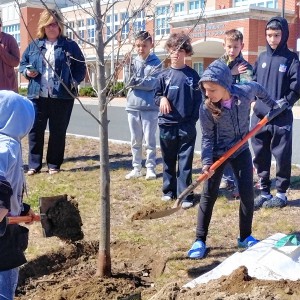 Students plant red maple outside Athol Community Elementary School
Students plant red maple outside Athol Community Elementary School
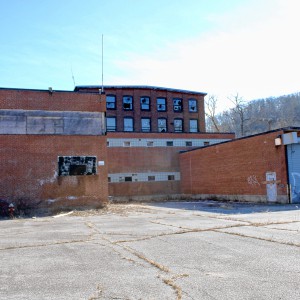 Erving rejects trade school’s incomplete proposal for mill reuse
Erving rejects trade school’s incomplete proposal for mill reuse
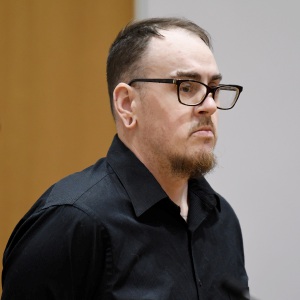 Orange man gets 12 to 14 years for child rape
Orange man gets 12 to 14 years for child rape
“A lot of what happens when you’re incarcerated or processed through the criminal legal system is people experience a loss of their sense of dignity and humanity that can kind of be stripped away,” Hendricks said. “And community-based programs that are centering the experiences of people who are impacted really provide a space for recovering and embracing that dignity and respect, and developing what I see as a really strong network of peers.”
Mahon spoke about her role as a workshop facilitator in the film, serving a teacher-like role in Voices from Inside writing sessions. She first heard about Voices from Inside from a former student and immediately incorporated writings from the program into her classes. She then started sharing the program’s anthology books with other faculty and bringing the poets to her classes.
“Our mission is twofold: to facilitate creative writing workshops where women can tell their own stories and their own diverse voices, and to increase public awareness of the human cost of incarceration,” she said.
As a facilitator, Mahon leads eight weeks of workshops based on the Amherst Writers and Artists method. The class starts with a prompt that everyone, including the facilitator, responds to, and then offers time to share writing with the group. The writings shared aloud are treated as fiction to avoid judgment.
“So we never assume that the writer is writing about their own experience, which is very freeing,” Mahon said. “We’re just responding to what do we remember, what stuck with us. And it’s this very wonderfully nonjudgmental environment for teaching creative writing.”
Mendez said she mostly writes about her experiences with incarceration or other stressors and traumas in her life, but any object or moment can inspire her writing. She sometimes uses stories from other incarcerated women in her writings.
“I’m being a voice for that person or for that story, because it impacted me so much. So I just have to write about it,” she said.
Hendricks said women voicing their experiences with imprisonment and incarceration brings greater attention to the differences between male and female prison life. As a professor of criminal justice and co-founder of Western Mass CORE, she provided contextual information for the film on the root causes that send 2 million women and girls to prisons and jail each year.
According to Hendricks, most women and girls who are incarcerated have experienced sexual or physical violence. Without access to mental health resources or community programs, many of these women turn to substance use to cope with their trauma, cycling in and out of county jails in the process.
“The challenges of reentry, the difficulty finding work, finding housing, difficulty in reconnecting with their families, and women in particular often kind of get left out of the story, which is why Voices from Inside is so important,” Hendricks said.
Many incarcerated women are also mothers, and Hendricks said women in jails and prisons often feel immense stress being away from their families. Massachusetts law allows for people to spend up to 2½ years in county jail while awaiting trial, so mothers who cannot pay bail must wait longer to reconnect with their families.
Community-based programs like Voices from Inside provide educational resources, strong communities and healthy coping mechanisms to help deal with these challenges that incarcerated women face.
“It’s this really empowering process where one goes from experiencing trauma to creating art to then having an impact on other people around them,” Mahon said.
Holyoke Community College will continue celebrating Women’s History Month with a screening of “Finding the Words: The Story of Voices from Inside” on Monday, March 25, at noon in the Campus Center Cafeteria.
Emilee Klein can be reached at eklein@gazettenet.com.

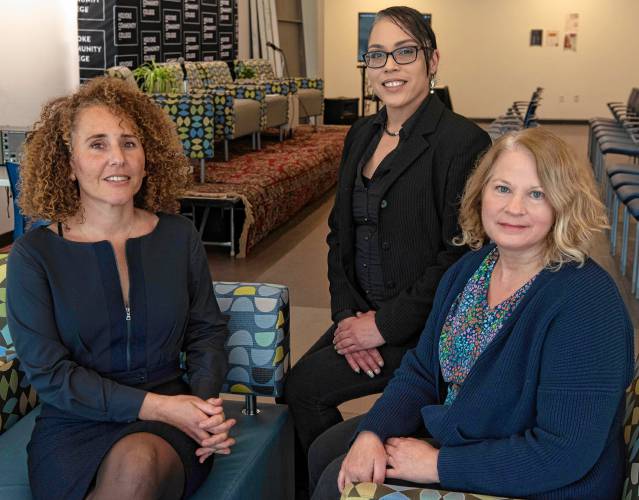
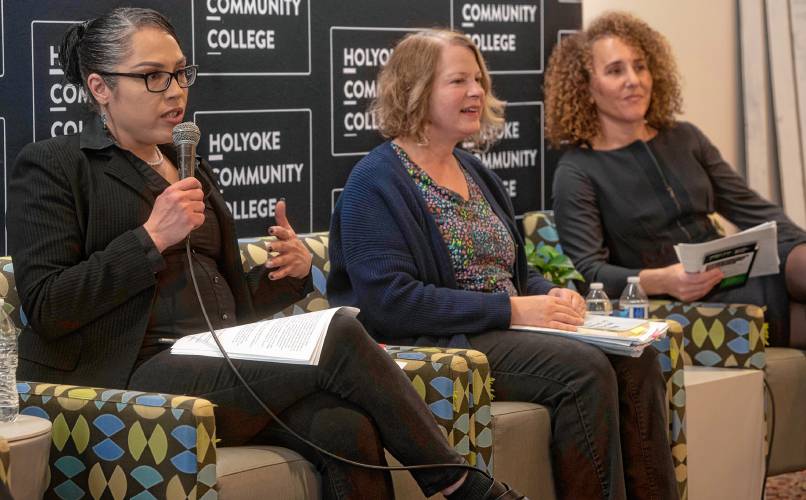
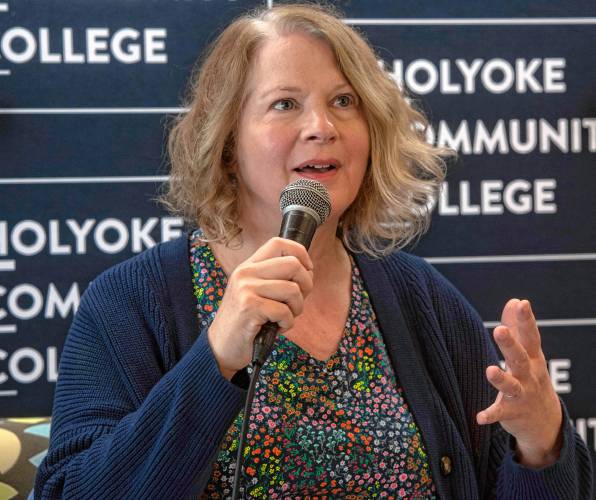
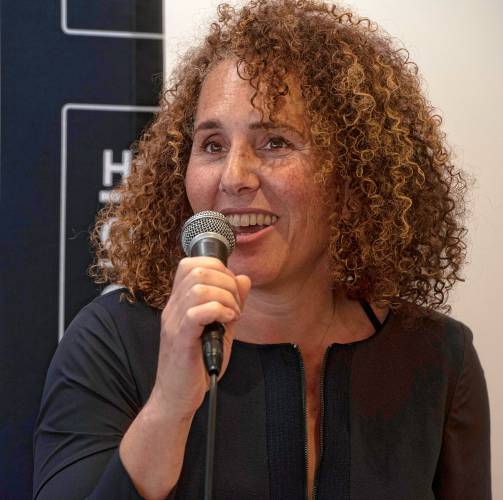
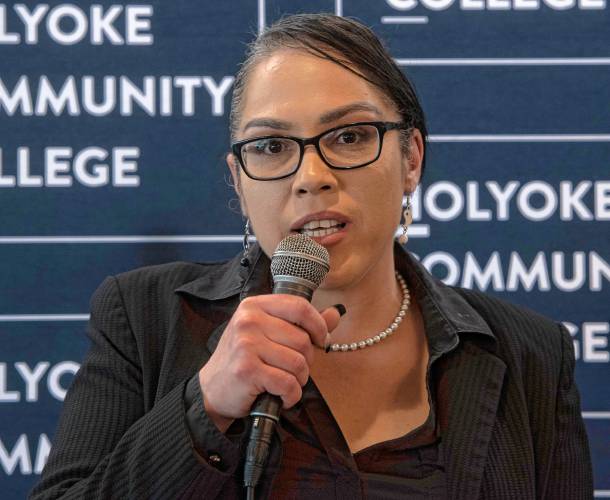
 Over $400M in shelter funding, new limits approved
Over $400M in shelter funding, new limits approved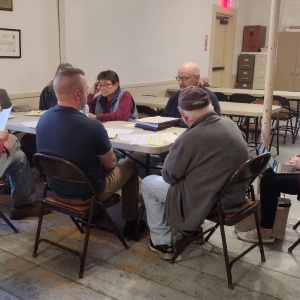 Royalston’s FinCom debates proposed salary increases
Royalston’s FinCom debates proposed salary increases PHOTO: Spectacular spire
PHOTO: Spectacular spire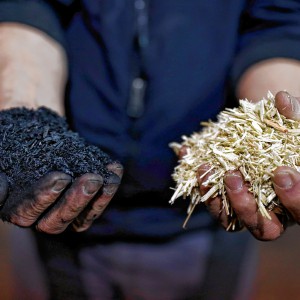 Locking up carbon for good: Easthampton inventor’s CO2 removal system turns biomass into biochar
Locking up carbon for good: Easthampton inventor’s CO2 removal system turns biomass into biochar